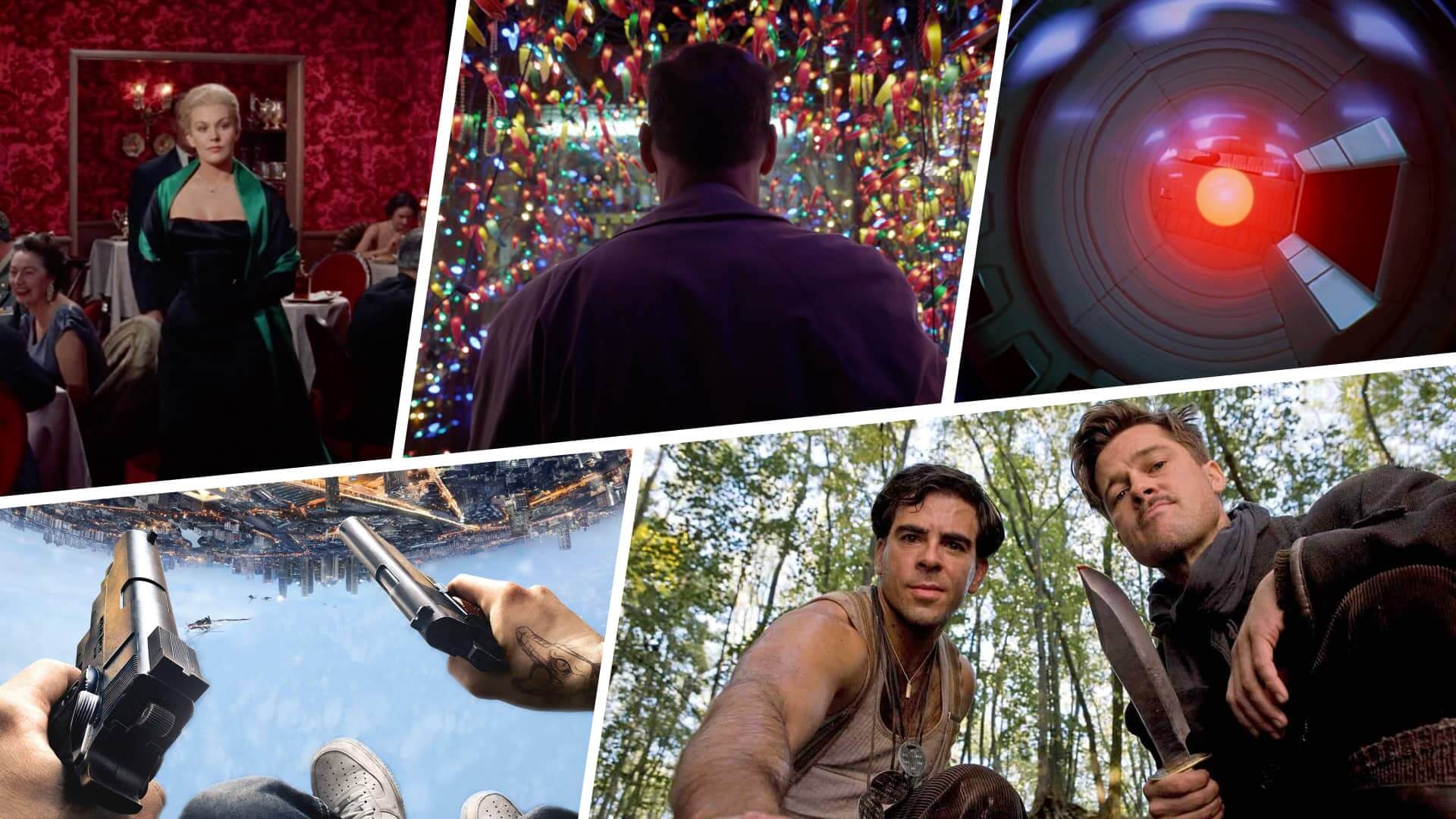Let’s cut to the chase, shall we? The definition of a movie is more than just a sequence of images projected on a screen. It’s an art form, a storytelling medium, and an experience that transcends language, culture, and time. Movies have the power to transport us to new worlds, evoke emotions, and challenge our perspectives. But what exactly defines a movie? Let’s peel back the layers and uncover the magic behind the silver screen.
You might think, “Hey, I watch movies all the time—what’s there to define?” Well, buckle up, because this isn’t just about popcorn and blockbusters. The concept of a movie has evolved dramatically over the years, from silent films to modern-day streaming sensations. Understanding its definition goes beyond the surface and dives deep into the technical, creative, and cultural aspects that make movies so special.
In this article, we’ll explore the nuts and bolts of what makes a movie, how it’s created, and why it matters. Whether you’re a film buff, a casual watcher, or someone who’s just curious about the world of cinema, you’re in for a treat. So, grab your favorite snack, and let’s dive into the fascinating world of movies!
- Bratty G Baby On Tiktok And Onlyfans What You Need To Know
- Johnny Rodriguez Estimated Net Worth Is He Rich Or Poor
Table of Contents
- The Evolution of Movies
- Key Components of a Movie
- Types of Movies
- The Movie Production Process
- Cultural Impact of Movies
- The Global Movie Industry
- Streaming and the Future of Movies
- Technological Advancements in Movies
- Awards and Recognition in the Movie World
- Final Thoughts: Why Movies Matter
The Evolution of Movies: From Silent Films to Blockbusters
Let’s rewind the clock for a sec. The history of movies is a tale of innovation and imagination. It all started in the late 19th century when inventors like Thomas Edison and the Lumière brothers were experimenting with motion picture technology. Back then, movies were silent, black-and-white, and short—think of them as the TikToks of their time. But hey, they were revolutionary!
Fast forward to the 1920s, and we enter the golden age of Hollywood. This era brought us iconic films like "The Jazz Singer," which marked the birth of "talkies"—movies with sound. Color films soon followed, and by the mid-20th century, movies had become a global phenomenon. Today, with advancements in CGI, 3D, and virtual reality, the possibilities are endless.
Why Does the History of Movies Matter?
Understanding the evolution of movies helps us appreciate how far we’ve come. Each era has contributed something unique to the art form, whether it’s the emotional depth of silent films or the jaw-dropping visuals of modern blockbusters. It’s like tracing the roots of a giant tree—each branch tells a story.
- Complete Entertainment Hub Explore An Array Of Movies On Vegamoviesin
- Who Is Douglas Murrays Husband Intriguing Details You Wonrsquot Believe
Key Components of a Movie: Breaking It Down
Now that we’ve got the history out of the way, let’s talk about what makes a movie… well, a movie. At its core, a movie consists of several key components that work together to create a cohesive experience. Here’s a quick rundown:
- Script: The blueprint of the movie. It’s where the story, dialogues, and characters come to life.
- Directors and Cast: The creative visionaries who bring the script to the screen. Directors guide the entire process, while actors bring the characters to life.
- Cinematography: The art of capturing visuals. This includes camera angles, lighting, and framing.
- Soundtrack and Music: Ever noticed how a haunting melody can make a scene even scarier? Music enhances the emotional impact of a movie.
- Editing: The final piece of the puzzle. Editing turns raw footage into a polished film.
Each of these components plays a crucial role in shaping the final product. Without them, a movie would just be… well, a bunch of random scenes.
Types of Movies: There’s Something for Everyone
One of the coolest things about movies is their diversity. Whether you’re into action-packed thrillers or heartwarming rom-coms, there’s a genre for everyone. Here are some of the most popular types of movies:
Action Movies
Who doesn’t love a good action flick? These movies are all about high-octane sequences, car chases, and explosions. Think "Die Hard," "Mad Max," or "John Wick." They keep you on the edge of your seat from start to finish.
Dramas
For those who prefer a more emotional experience, dramas delve into the complexities of human relationships and struggles. Films like "Forrest Gump" and "The Pursuit of Happyness" tug at your heartstrings in the best way possible.
Comedies
Laughter is the best medicine, and comedy movies deliver it in spades. From classic slapstick humor to witty dialogue, comedies are the perfect way to unwind. Who can forget "Superbad" or "The Hangover"?
The Movie Production Process: From Concept to Screen
Making a movie is no small feat. It’s a collaborative effort that involves countless people working together to bring a vision to life. Here’s a breakdown of the production process:
Pre-Production
This is where the groundwork is laid. Scripts are written, budgets are set, and locations are scouted. Directors and producers work closely to ensure everything is in place before shooting begins.
Production
Welcome to the main event! This is when the actual filming takes place. Actors perform their scenes, cameras roll, and the magic happens. It’s a chaotic yet exhilarating phase.
Post-Production
Once filming wraps up, the real work begins. Editors piece together the footage, sound designers add effects, and composers create the music. By the time it’s done, the movie is ready for its big debut.
Cultural Impact of Movies: Shaping Society
Movies aren’t just entertainment—they’re cultural artifacts. They reflect the values, fears, and aspirations of the societies that produce them. Think about it: films like "Black Panther" and "Parasite" have sparked global conversations about representation and inequality.
They also have the power to influence trends. Remember how "Titanic" made everyone want to dress like Rose or Jack? Or how "The Matrix" popularized leather jackets and sunglasses? Movies shape the way we think, dress, and even speak.
The Global Movie Industry: A Multi-Billion Dollar Business
Let’s talk numbers for a sec. The global movie industry is worth billions of dollars. In 2022 alone, box office revenues hit $45 billion worldwide. And that’s not even counting streaming platforms like Netflix and Amazon Prime, which are changing the game in a big way.
But it’s not just about the money. The industry creates jobs, fosters creativity, and brings people together. It’s a testament to the power of storytelling and the universal appeal of movies.
Streaming and the Future of Movies: Is the Theater Dead?
With the rise of streaming services, the way we consume movies is evolving. Platforms like Netflix, Hulu, and Disney+ offer on-demand access to a vast library of films. But does this mean the end of theaters? Not quite.
While streaming has its perks—like watching from the comfort of your couch—theater experiences still hold a special place in our hearts. There’s nothing quite like watching a movie on the big screen with a crowd of fellow fans. The future of movies will likely involve a balance between the two.
Technological Advancements in Movies: Pushing Boundaries
Technology has played a huge role in shaping the movie industry. From the invention of sound to the development of CGI, each advancement has opened up new possibilities. Today, we’re seeing things like virtual reality and AI-generated content that blur the line between reality and fiction.
But with great power comes great responsibility. As technology continues to evolve, filmmakers must ensure that it enhances the storytelling experience rather than overshadowing it.
Awards and Recognition in the Movie World: Celebrating Excellence
Every year, the movie industry celebrates its best and brightest through awards like the Oscars, Golden Globes, and BAFTAs. These events not only honor exceptional talent but also highlight the cultural significance of films. Winning an award can be a career-defining moment for actors, directors, and crew members alike.
But awards aren’t just about accolades—they’re about recognition. They shine a spotlight on films that might otherwise go unnoticed, giving them a chance to reach a wider audience.
Final Thoughts: Why Movies Matter
So, what is the definition of a movie? It’s more than just a sequence of images—it’s an experience, a connection, and a reflection of our world. Movies have the power to inspire, educate, and entertain. They bring people together, spark conversations, and leave a lasting impact.
As the industry continues to grow and evolve, one thing remains constant: the love for storytelling. Whether you’re watching a classic film or a new release, movies have a way of touching our hearts and expanding our minds.
So, the next time you settle in for a movie night, take a moment to appreciate the artistry and effort that went into creating that film. And don’t forget to share this article with your friends—after all, movies are best enjoyed when shared!
- Anjali Arora The Controversy Behind Viral Mms Xxx Videos Unveiled
- Avoid Skymovieshd Piracy Risks Safe Alternatives You Need To Know


